Review: WHEN WE DEAD AWAKEN at The Coronet Theatre
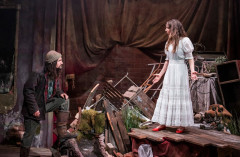 The charmingly faded grandeur of the Coronet Theatre in Notting Hill Gate once again welcomes the Norwegian Ibsen Company for their third collaborative effort — this time breathing life into the playwright’s last major work WHEN WE DEAD AWAKEN from 1899.
The charmingly faded grandeur of the Coronet Theatre in Notting Hill Gate once again welcomes the Norwegian Ibsen Company for their third collaborative effort — this time breathing life into the playwright’s last major work WHEN WE DEAD AWAKEN from 1899.
Rubek, a sculptor whose celebrity is inextricably linked with his early masterpiece The Resurrection Day, abandoned his muse Irene on completion of the project. He subsequently married Maia but as the years have passed, he has grown weary of her ‘endless companionship’ and she has tired of his unfulfilled promises and seeks solace elsewhere, including most recently with a strapping young bear-hunter named Ulfheim who is eager for her to join him on a mountain hunt.
The artist re-encounters Irene and immediately realises his early life and vibrant creativity were as poetry compared with the prosaic churn of his recent life and uninspiring output. He longs to live again, whereas she believes she relinquished her soul as the price for helping him create the masterpiece those many years ago.
Whilst the play’s outlook is typically informed by the harsh natural beauty of the Norwegian landscape and the austere temperament of its inhabitants, there are humanist comedic touches in the adaptation presented here under the gentle direction of Kjetil Bang-Hansen.
If anything, this reviewer’s only complaint is that in an apparent bid to keep the running time short and palatable, some of Ibsen’s original plot points have been glossed-over or seemingly updated with limited success. For example, we are given little understanding of the initial location and environmental context under which the artist and his muse re-encounter each other, with the set failing to offer much visual assistance — (it is quite clearly a hotel spa in the original text). The boisterously unsophisticated and slightly uncertain mountain dwelling bear-hunter Ulfheim under whose physical spell Maia quickly falls, was originally a land-owning squire who commanded both dogs and those in his service with ease and confidence. The removal of these defining elements diminishes the flow and believability of certain situations as they unfold. The ending too felt somewhat truncated with a hurried verbal conclusion directed to the audience in place of a more theatrically realised avalanche.
Prospective patrons should be aware that much of the dialogue is delivered by the largely Norwegian cast in Norwegian with surtitles projected onto centred backdrop drapes. The production runs in London until 2nd April before touring Norway.
Latest News
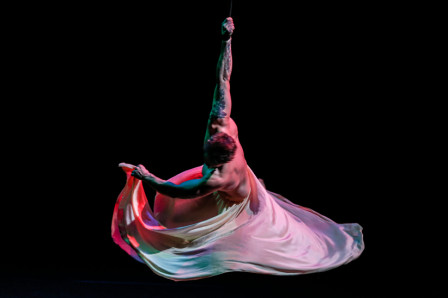
 Review: TUTU at Sadler’s Wells East
12 February 2026 at 08:52
Review: TUTU at Sadler’s Wells East
12 February 2026 at 08:52
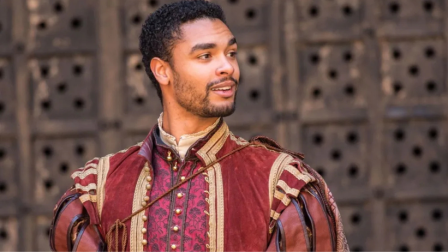
 Is The Great Gatsby, starring Regé-Jean Page, heading to the West End?
11 February 2026 at 15:40
Is The Great Gatsby, starring Regé-Jean Page, heading to the West End?
11 February 2026 at 15:40
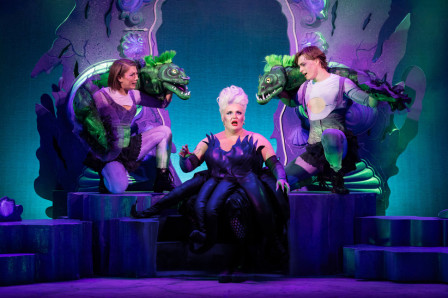
 Production photos of UNFORTUNATE: THE UNTOLD STORY OF THE SEA WITCH released
11 February 2026 at 15:14
Production photos of UNFORTUNATE: THE UNTOLD STORY OF THE SEA WITCH released
11 February 2026 at 15:14
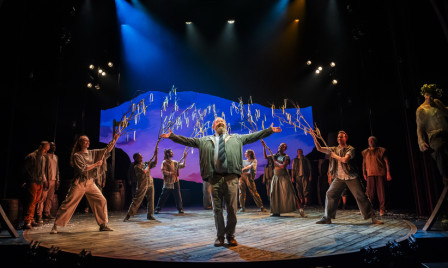
 Review Round-Up: THE UNLIKELY PILGRIMAGE OF HAROLD FRY at the Theatre Royal Haymarket
11 February 2026 at 14:19
Review Round-Up: THE UNLIKELY PILGRIMAGE OF HAROLD FRY at the Theatre Royal Haymarket
11 February 2026 at 14:19